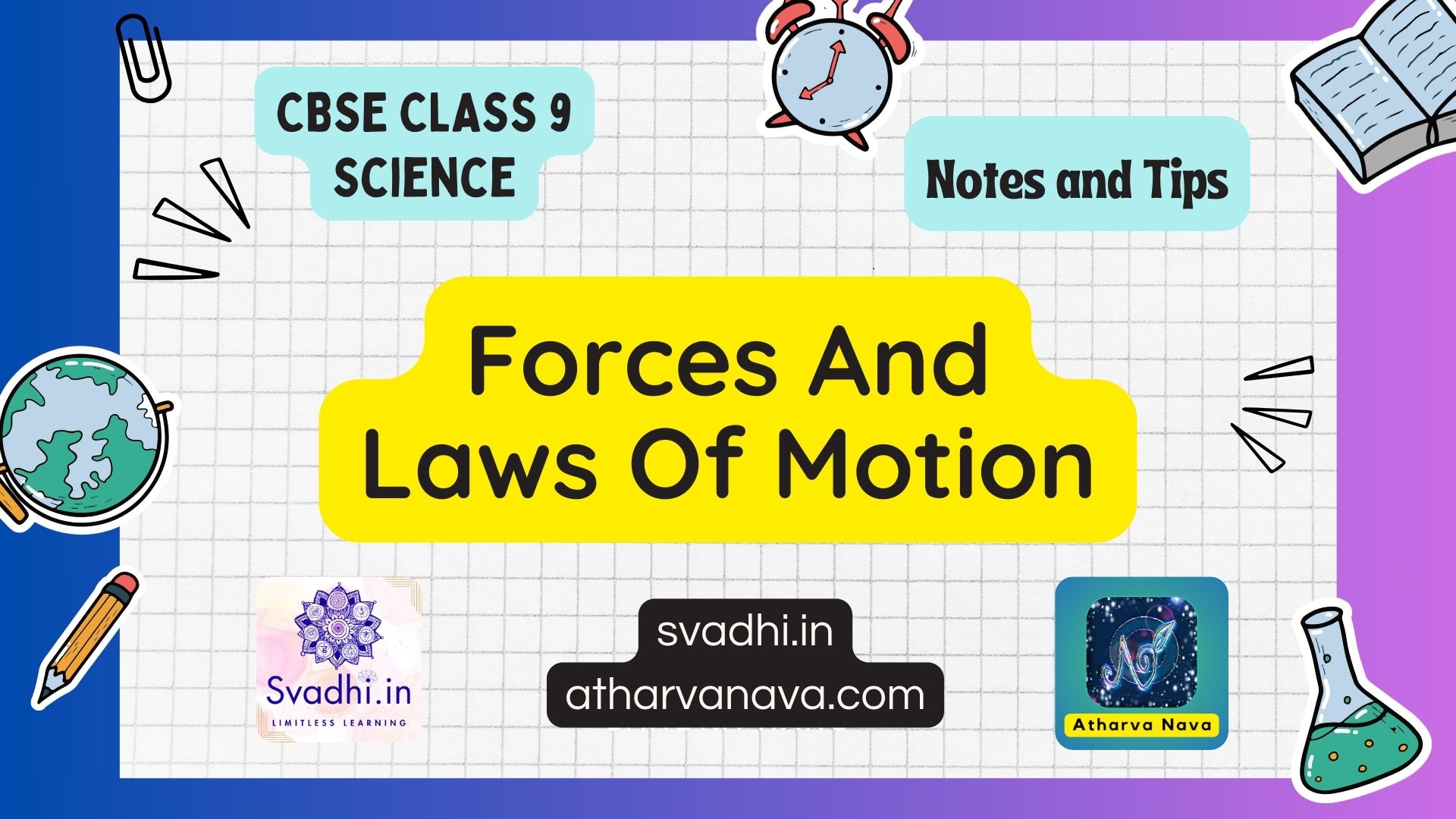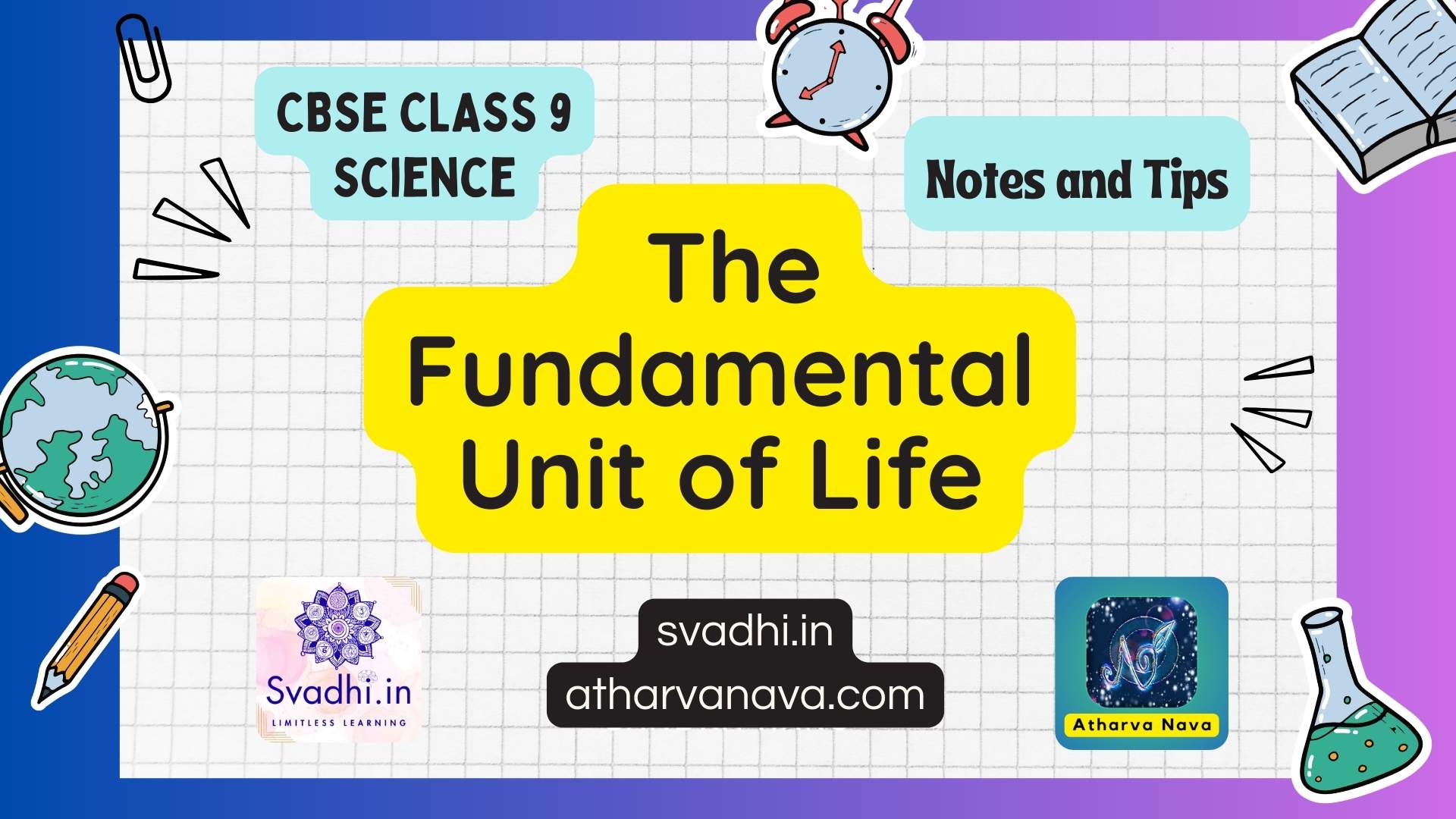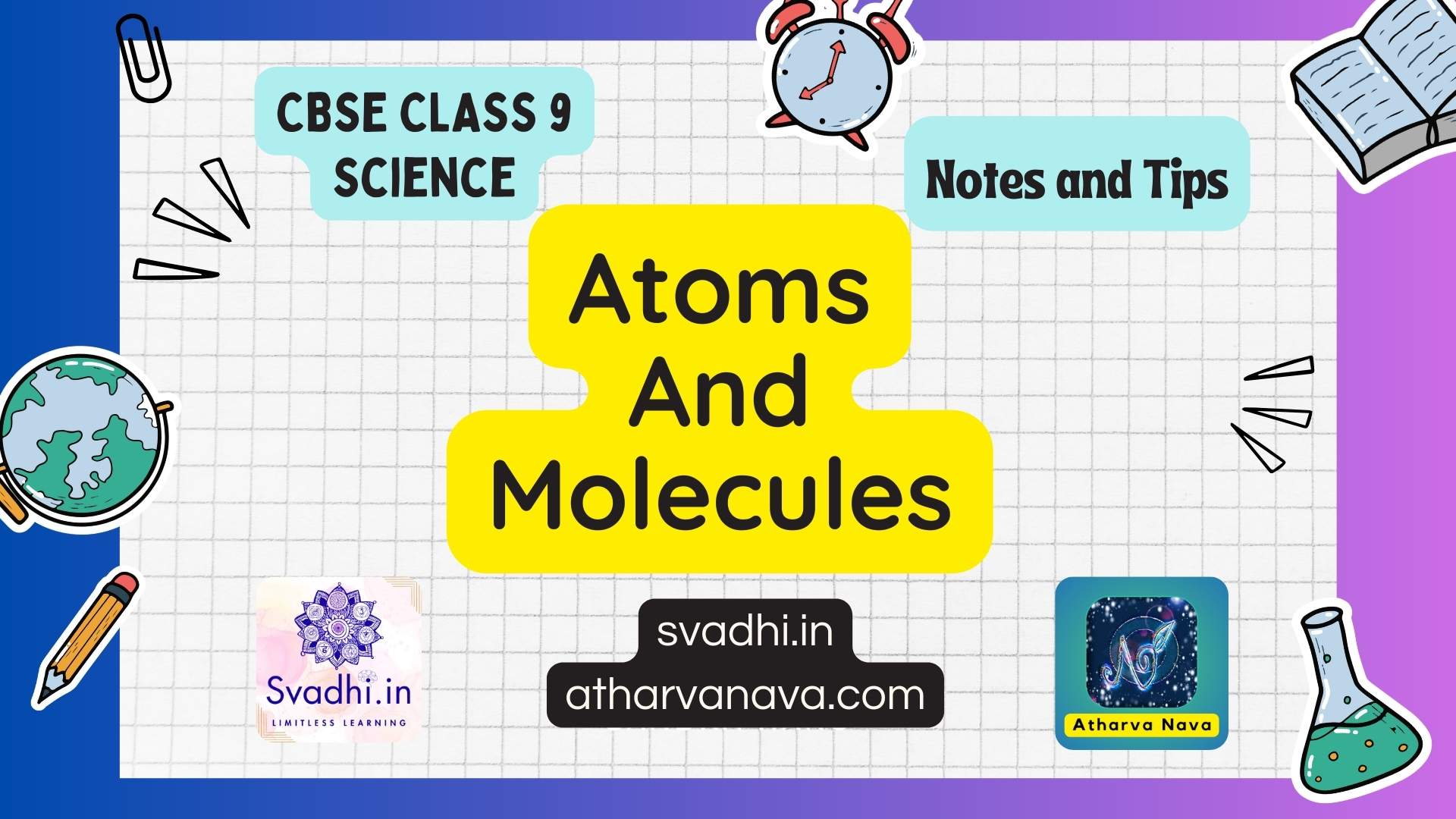
CBSE Class 9 Science Notes – Chapter 12 : Improvement In Food Resources
Food Sources Need For Efficiency Of Crops And Livestock Efforts Made To Meet The Increase In Food Demands The introduction of these revolutions has led[…]

CBSE Class 9 Science Notes – Chapter 11 : Sound
Speed Of Sound The speed of sound depends on the medium through which it travels and the conditions of that medium, particularly its temperature, density,[…]

CBSE Class 9 Science Notes – Chapter 10 : Work And Energy
Work Energy Various Forms of Energy Potential Energy (PE) Kinetic Energy Energy possessed by an object by virtue of its position/configuration Energy possessed by an[…]

CBSE Class 9 Science Notes – Chapter 9 : Gravitation
Gravitation Force between two objects or bodies which attract each other due to their masses Effects of Gravity Free fall Equation of Motion Acceleration due[…]

CBSE Class 9 Science Notes – Chapter 8 : Forces And Laws Of Motion
Force Types of Force Contact Non Contact The forces which act on bodies when they are in physical contact are called contact force. The forces[…]

CBSE Class 9 Science Notes – Chapter 7 : Motion
Motion: Moving Of Body/object Newton’s First Law of Mot ion Body continues its state of rest or of uniform motion in a straight line unless[…]

CBSE Class 9 Science Notes – Chapter 6 : Tissues
A group of cells that are similar in structure and/or work together to achieve a particular function forms a tissue. Plant Tissues Meristematic Tissue(Immature cells[…]

CBSE Class 9 Science Notes – Chapter 5 : The Fundamental Unit of Life
1. Cell Smallest structural and functional unit of life. Discovery of cell and its components Cell theory Types of cells on basis of organization Types[…]

CBSE Class 9 Science Notes – Chapter 4 : Structure Of Atom
Charged Particle In Matter Electron Proton Neutron Negatively charged sub-particles of atom is called electron. Positively charged sub-particles of atom is called proton. Neutral sub-particles[…]

CBSE Class 9 Science Notes – Chapter 3 : Atoms And Molecules
Laws Of Chemical Combination Antoine L. Lavoisier give two important laws of chemical combination. Law of Conservation of Mass: It states that mass can neither be[…]